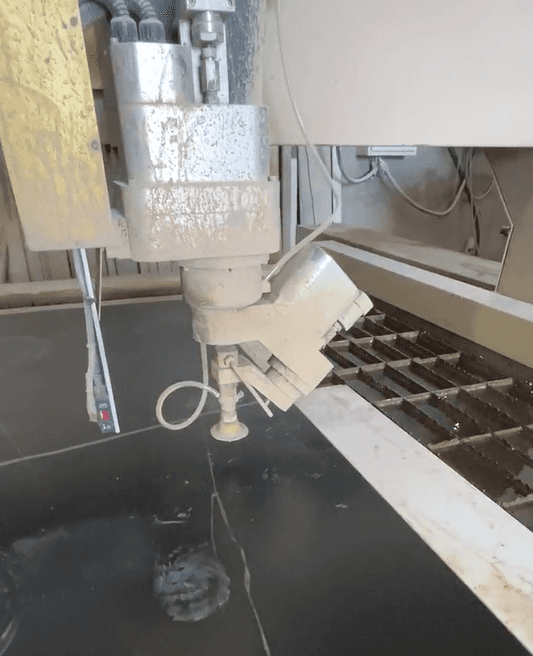Do You Know What to Pay Attention to When Using a Waterjet Cutter?
Kylie
Waterjet cutting technology, with its precision and flexibility, has been widely applied in industries such as ceramics, slab, and stone. However, despite its power, there are many considerations to keep in mind during operation to ensure perfect cutting results and safety.
The Cutting Effectiveness of Abrasive Waterjets
Abrasive waterjets enhance the high-pressure water stream with an abrasive material to cut through hard materials like ceramics, slabs, and stone. This method not only achieves precise cuts but also minimizes damage to the material, making it a popular choice in the ceramic and stone industries for primary processing machinery.
Challenges in Cutting Delicate Parts
While waterjet cutting has many advantages, it can be challenging to cut delicate or thin structures without causing cracks. The high-pressure water stream can exert excessive local pressure on the material, leading to uneven stress and the potential for cracking.
Reasonable Control of Waterjet Pressure
The pressure of the waterjet directly affects the cutting outcome. Higher pressure increases the impact force of the water stream, which is beneficial for quickly cutting through hard materials but also raises the risk of the material cracking under the stress. Therefore, it is crucial to reasonably control the waterjet pressure.
In practice, operators need to adjust the waterjet pressure based on the properties of the material and the cutting requirements. For fragile or delicate materials, a lower pressure setting should be chosen to reduce the impact on the material. For harder materials, the pressure can be appropriately increased to ensure cutting efficiency.
Other Precautions
In addition to controlling the waterjet pressure, there are several other key points to consider:
Material Securing: Ensure that materials are securely fastened during the cutting process to prevent movement or damage due to the impact of the water stream.
Nozzle Maintenance: Regularly inspect and replace nozzles to ensure the stability and precision of the water stream.
Operational Safety: Operators should wear appropriate protective gear, such as safety glasses and gloves, and maintain a safe distance from the cutting area.
Equipment Inspection: Thoroughly check the waterjet equipment before each use to ensure all parts are functioning correctly.
Environmental Control: Maintain a clean and dry working environment to prevent accidents due to slippery floors or other potential hazards.
In summary, waterjet cutting is an efficient and precise technology, but it also requires skill and experience from the operator. By reasonably controlling the waterjet pressure, operating carefully, and following safety procedures, you can effectively improve cutting quality and ensure operational safety.







